The End of Suburbia est un film canadien de genre Documentaire
The End of Suburbia (2004)

Si vous aimez ce film, faites-le savoir !
Durée 1h18
OrigineCanada
Genres Documentaire
Themes L'environnement, Documentaire sur l'environnement, Documentaire sur les technologies, Documentaire sur les villes
Note73%










The End of Suburbia: Oil Depletion and the Collapse of The American Dream is a 2004 documentary film concerning peak oil and its implications for the suburban lifestyle, written and directed by Toronto-based filmmaker Gregory Greene.
The film is hosted by Canadian broadcaster Barrie Zwicker and features discussions with James Howard Kunstler, Peter Calthorpe, Michael Klare, Richard Heinberg, Matthew Simmons, Michael Ruppert, Julian Darley, Colin Campbell, Kenneth S. Deffeyes, Ali Samsam Bakhtiari and Steve Andrews.
In 2007, Greene released a sequel called Escape from Suburbia.
Commentaires
Postez un commentaire :
Suggestions de films similaires à The End of Suburbia
Il y a 8963 ayant les mêmes genres cinématographiques, 1381 films qui ont les mêmes thèmes (dont 1 films qui ont les mêmes 4 thèmes que The End of Suburbia), pour avoir au final 70 suggestions de films similaires.Si vous avez aimé The End of Suburbia, vous aimerez sûrement les films similaires suivants :
 , 1h35
, 1h35Genres Documentaire
Thèmes L'environnement, Documentaire sur l'environnement, Documentaire sur les technologies, Documentaire sur les villes
Note65%





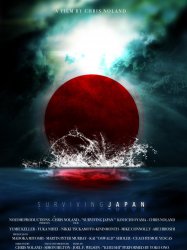
3.11: Surviving Japan (2013)
, 1h30Réalisé par Simon Hilton
Genres Documentaire
Thèmes L'environnement, La mer, Transport, Documentaire sur l'environnement, Documentaire historique, Documentaire sur le nucléaire, Documentaire sur les technologies, Film catastrophe, Catastrophe sismologique
Note81%





The film spans from March 11, 2001 to September 19, 2011, starting with Noland's own experience in the Tōhoku Earthquake and tsunami, Fukushima Daiichi nuclear disaster followed by volunteer activities in Ofunato
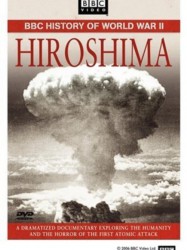
Hiroshima (2005)
, 1h29Origine Royaume-uni
Genres Drame, Documentaire
Thèmes L'environnement, La mer, Transport, Aviation, Documentaire sur l'environnement, Documentaire sur la guerre, Documentaire historique, Documentaire sur le nucléaire, Documentaire sur les technologies, Politique, Documentaire sur la Seconde Guerre mondiale
Acteurs John Hurt, Ed Bishop, Katsumi Chō, Naoko Mori, Ian Shaw, Shane Rimmer
Note76%





À 8h15 précises ce 6 août 1945, le monde a changé. 40.000 personnes trouvent instantanément la mort, mais ce sont bien 200.000 décès qui seront provoqués par l´explosion de la première bombe nucléaire sur Hiroshima, au Japon. Ce documentaire exceptionnel de 90 minutes n´est pas « Un énième film anti-guerre » déclare son réalisateur Paul Wilmshurst, « mais bien l´analyse neutre et objective d´une décision cruciale. Il ne s´agit pas d´être pro-américain ou pro-japonais, j´ai simplement voulu raconter la vérité. » Une vérité technologique, scientifique, militaire et politique qui se dessine dans les trois semaines précédant l´attaque, alors que le premier essai nucléaire vient de se dérouler dans le désert du Nouveau-Mexique, aux États-Unis. Le spectateur se retrouve alors dans la pièce où est prise la décision ultime, à bord de l´Enola Gay pendant son trajet fatidique, à l´intérieur de la bombe au moment de l´explosion, puis dans les rues dévastées d´Hiroshima.

The Unnamed Zone (2006)
, 1h20Réalisé par Carlos Rodríguez
Genres Documentaire
Thèmes L'environnement, Documentaire sur l'environnement, Documentaire historique, Documentaire sur le nucléaire, Documentaire sur les technologies, Film catastrophe
Note63%





The Spanish film crew led by Carlos Rodriguez is following the life stories of three children - Lidia Pidvalna, Anastasia Pavlenko, and Andriy Kovalchuk - whose lives were drastically changed after an explosion at the Chernobyl Nuclear Power Station on April 26, 1986. Through the documentary, the children and their families "living perilously close to the exclusion zone around the destroyed station recount their fears, dreams, fantasies, and hopes for the future." Each child holds a "Chernobyl certificate" which bestows access to government grants and aid and is a gruesome reminder of their existential reality.

Nuclear Tipping Point (2010)
, 56minutesGenres Documentaire
Thèmes L'environnement, Documentaire sur l'environnement, Documentaire sur la guerre, Documentaire historique, Documentaire sur le nucléaire, Documentaire sur les technologies, Politique
Note67%





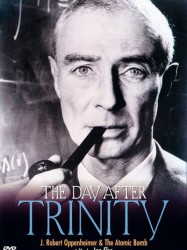
The Day After Trinity (1981)
, 1h28Origine Etats-Unis
Genres Documentaire, Historique
Thèmes L'environnement, Documentaire sur l'environnement, Documentaire sur la guerre, Documentaire historique, Documentaire sur le nucléaire, Documentaire sur les technologies
Acteurs Paul Frees
Note77%





Ce film documentaire a été réalisé et produit par John Else en association avec la chaîne de télévision publique KTEH de San José (Californie). Le film raconte l'histoire de Robert Oppenheimer (1904–1967), le physicien qui joua un rôle prépondérant dans le développement de la première bombe atomique, testée en juillet 1945 au centre d'essai nucléaire de Trinity au Nouveau-Mexique.
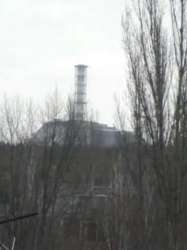
White Horse (2008)
, 18minutesOrigine Etats-Unis
Genres Documentaire
Thèmes L'environnement, Documentaire sur l'environnement, Documentaire historique, Documentaire sur le nucléaire, Documentaire sur les technologies, Film catastrophe
Note69%





The beginning of the film starts with DeLeo, Bisson and Surkov driving through Kiev. This is introduced as the beginning of their journey to Pripyat, near the ground zero of Chernobyl. Once they reach the outpost outside the exclusion zone, we see that the area surrounding Pripyat is very deserted and dark. Once in the city, we see Surkov's old home, which he explains has been robbed of almost all its belongings due to looters. Yet there are still some mementos in the old apartment, including the wallpaper he and his mother put up, the training bars his father bought for him, an old rubber ball he claims was his favorite and a white horse poster plastered on the wall of his old bedroom. The pain he feels is evident. When he sees an old calendar on a door, he rips a large portion off, claiming "the year ended on April 26th". Outside the door of the apartment, he remarks how he wishes he could stay forever. He throws his old ball through the door and walks out of the apartment complex. The film ends with Surkov snapping some twigs in an old courtyard and then an image of the car they traveled in leaving the exclusion zone.

Cultures en transition (2012)
, 1h5Origine France
Genres Documentaire
Thèmes L'environnement, La mondialisation, Le monde du travail, Documentaire sur le monde des affaires, Documentaire sur l'environnement, Documentaire sur les technologies, Documentaire sur le monde du travail, Film catastrophe
Note75%





Le film met en garde contre les dangers contre les dépendances en agriculture d'intrants chimiques et de ressources énergétiques. Le film décrit des alternatives agricoles en France, le mouvement des Villes en transition et le changement de paradigme agricole à Cuba comme des exemples préfigurateurs d'un nouveau mode de production agricole, à petite échelle et décentralisé.

The Big Fix (2011)
, 1h30Réalisé par Rebecca Harrell Tickell, Josh Tickell
Origine Etats-Unis
Genres Documentaire
Thèmes L'environnement, Documentaire sur l'environnement, Documentaire sur les technologies
Acteurs Josh Tickell, Rebecca Harrell Tickell, Peter Fonda, Amy Smart
Note76%





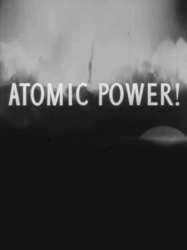
Atomic Power (1946)
, 18minutesOrigine Etats-Unis
Genres Documentaire
Thèmes L'environnement, Documentaire sur l'environnement, Documentaire sur la guerre, Documentaire historique, Documentaire sur le nucléaire, Documentaire sur les technologies
Note54%





 Connexion
Connexion